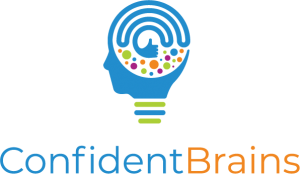What Is Executive Functioning?
Executive Functioning sounds like a phrase that you might hear around a boardroom table. However, it relates to something much more important – the human brain and more specifically, the brain’s ability to maintain focus and attention.
If you think of your brain as a tightly run organization, executive function can be likened to the boss. It’s in charge and responsible for setting goals, planning tasks and basically just getting things done!
Signs that all is not right with the brain’s executive function, may include difficulties around maintaining attention, prioritizing tasks, and switching focus from one task to another. People with executive function challenges can also be perceived as rigid or stubborn, all of which combines to affect work performance and personal relationships.
Having problems with executive function is not necessarily a specific learning difficulty on its own. Rather, it is a broader term to describe challenges within a group of cognitive abilities important to learning. The 3 elements of executive functioning are:
- Working Memory
- Cognitive Flexibility (also called flexible thinking)
- Inhibitory Control (including self-control)
Testing
Testing for executive functioning issues requires comprehensive evaluation that looks for underlying learning difficulties. This type of evaluation can be done by a professional who is trained to administer the tests and interpret the results. Specific tests look at a wide range of skills including:
- Attention
- Inhibitory control
- Working memory
- Organization and planning
- Concept formation
- Set shifting (the ability to shift from one task to another)
- Word and idea generation
Impacts
ADD and ADHD are by and large a problem of executive function. The symptoms of a person with ADHD for instance, typically include impulsivity, difficulty paying attention, poor working memory, trouble managing emotions and difficulty shifting focus from one task to another.
People with specific learning difficulties like dyslexia, dysgraphia and dyscalculia can often have weak executive function skills. When these learning difficulties are compounded the challenges of learning can become even more complex.
Anxiety and depression are also common in people suffering executive function issues. This could be attributed to the ongoing negative impacts of high stress and lower self-esteem resulting from learning challenges.
Brain imaging studies have been used to identify how executive function issues appear in the brain. Research shows that in people who struggle with these skills, the frontal areas of the brain responsible for executive function are slower to develop. This is also evident in other learning difficulties such as dyslexia.
There is also a genetic component associated with executive function issues. Like many other neuro and physiological ailments, people with executive function issues can often trace back to a family member that may have had similar difficulties.
Finding Solutions
The standard solutions to improve the lives of those struggling with executive functioning typically involve several strategies in unison. Medication is widely prescribed for attention issues but can have side effects that do little to improve overall well-being. Education workers, coaches and healthcare providers can provide strategies to navigate social situations, improve organizational skills and behavior management (1).
Cognitive training interventions, read brain training, has been used since the late 1970’s to address the root cause of executive function difficulty. Strengthening weaker cognitive functions can be a challenging long term process. However, improvements can be dramatic and the effects permanent (2).
Original Sources
- The Understood Team (2019) Understanding Executive Functioning Issues. Retrieved from https://www.understood.org/en/learning-attention-issues/child-learning-disabilities/executive-functioning-issues/understanding-executive-functioning-issues#item3
- Doidge, Norman. (2010). The brain that changes itself : stories of personal triumph from the frontiers of brain science. Carlton North, Vic. :Scribe Publications. http://www.normandoidge.com/?page_id=1259
